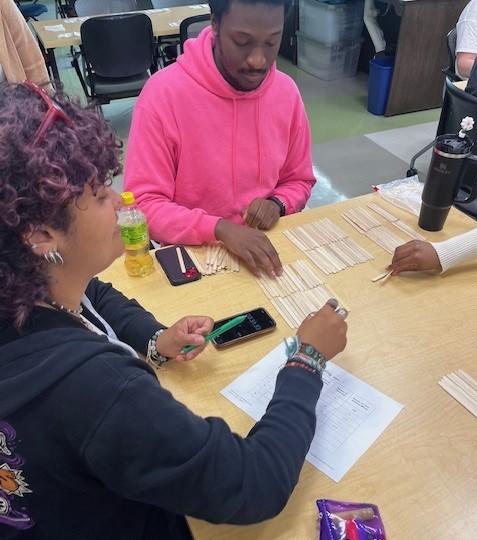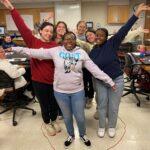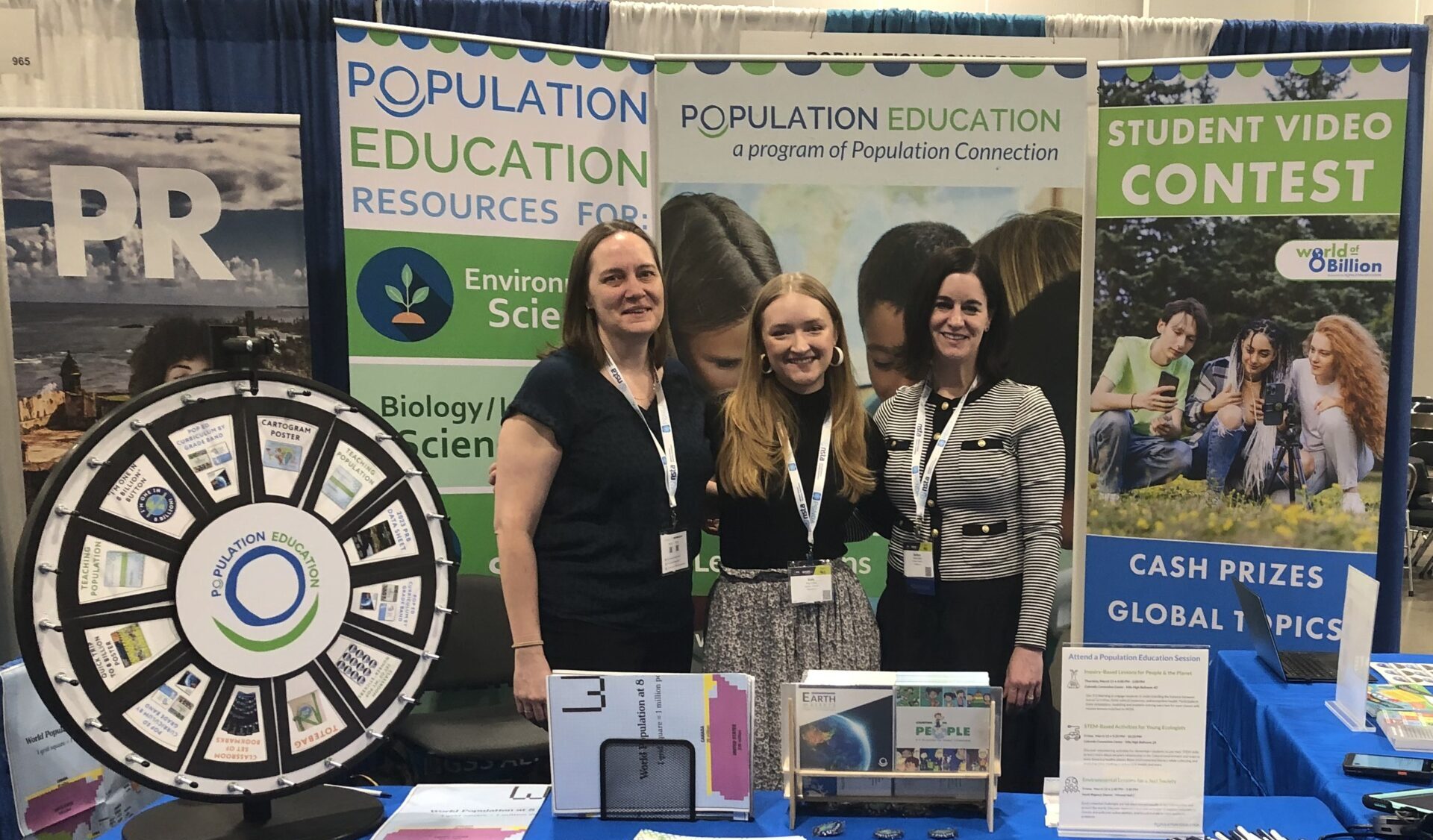Population Education, June 2024
Written by Pamela Wasserman, Senior Vice President for Education | Published: June 10, 2024
On the Road with PopEd, Spring 2024 Edition
From New York to Arizona, and many points in between, PopEd’s professional staff just wrapped up a busy spring on the road facilitating workshops for current and future teachers. I asked five of our team members to share some highlights of their recent travels.
Lindsey Bailey
Education Network Director
“The visuals really help it come to life!”
“You could feel how quickly the trees disappeared. Suddenly, they were just gone.”

I received these comments during recent workshops with pre-service teachers in New York state. Interesting visuals and hands-on manipulatives are hallmarks of PopEd lessons. In Food for Thought, which inspired the first quote, GNI per capita is represented using Hershey’s Kisses (one candy = $1,000), and per capita energy use is represented with birthday candles (one candle = 1 barrel of oil). When regional ambassadors hold up their region’s respective bags of candies and candles, the data on global inequities becomes crystal clear. The second quote came during Timber!, a lesson on deforestation where popsicle sticks symbolize trees that are getting cut at an ever-increasing rate in a supply/demand simulation. Using props leads to higher levels of student engagement and understanding for all types of learners.
Carol Bliese
Senior Director of Teacher Programs

I recently spent two days with pre-service teachers at Indiana University. I worked with a class of future secondary math teachers, and with six classes of future elementary teachers who were taking a course on teaching science in grades K–6. Each group had different takes on the PopEd lessons.
For instance, after examining the direct relationship between living things and resources in Panther Hunt, I opened discussion on science concepts the future teachers could tie into the lesson. One group considered the proximity of surviving panthers to available food in the habitat (access to resources matter!), while another group strategized how to maximize the number of panthers that could survive. Food chains and biotic potential captured the interest of another group. Connections to local ecosystems were on the minds of a fourth section.
Katie Grams
Education Program Associate
The spring was a whirlwind of travel for me, presenting in South Carolina, Michigan, Colorado, and Mississippi. Across 19 workshops, I shared 20 unique PopEd activities, engaging nearly 500 participants in total. Each workshop offered new insights into our curriculum as workshop attendees reviewed the lessons I shared with a fresh set of eyes.
The most rewarding moments are when a workshop participant pulls me aside afterward to share how much they enjoyed the presentation. It’s wonderful to hear from both current and future educators that our lessons will fit right into their course syllabi. Their gratitude is heartwarming and keeps me grounded in PopEd’s mission.
I also made the most of my free time to check out the sites, touring a mineshaft in a little mountain town outside Denver, exploring the French Quarter in New Orleans after my Mississippi workshops, and scoring a serendipitous, last-minute ticket to a Stevie Nicks concert in Greenville, South Carolina!
Barbara Huth
Online Learning Manager
In April, I shared PopEd lessons with pre-service elementary teachers at Arizona State University and the University of Arizona. A professor commented on how nice it was for their students to see active learning strategies in the workshop because often their students only get exposed to lessons that are worksheet based.
The student teachers were especially animated while role-playing in Web of Life, an interactive story of a forest ecosystem. They were surprised that with a tug of the string in the web they could feel how different members of the forest community were impacted by human interactions. We discussed how individual actions can have a ripple effect on all members of that habitat and beyond, even if an individual community member can’t initially feel or see the impact. We also connected this story to local ecosystems, such as the Sonoran Desert, and how to take care of them.
Laura Short
Senior Education Program Associate
While attending the National Science Teaching Association conference in Denver in March, we invited our volunteer trainers, both at the conference and living in Colorado, to join the PopEd staff for an afternoon meet-up. This was the perfect occasion to build on our trainer community and bring folks together. We had 13 volunteers join us for snacks high above the Denver skyline. From a former ZPG board member and retired school administrator who’s been with PopEd for decades, to two of our newest trainers, they represented the past, present, and future of PopEd. They all shared a passion and energy for our organization, and gratitude for the work we do. And it was amazing to express gratitude back to these incredible folks!

